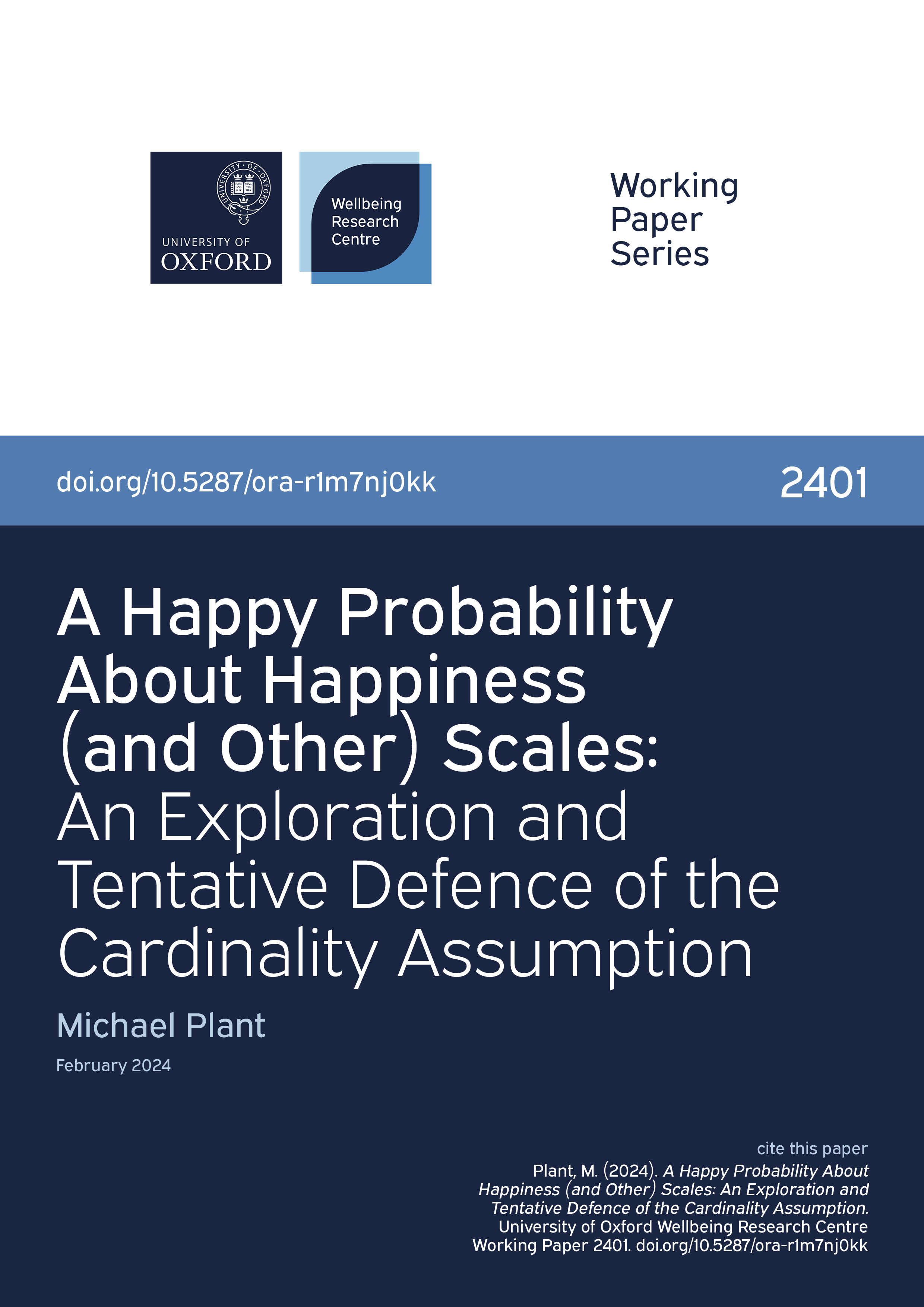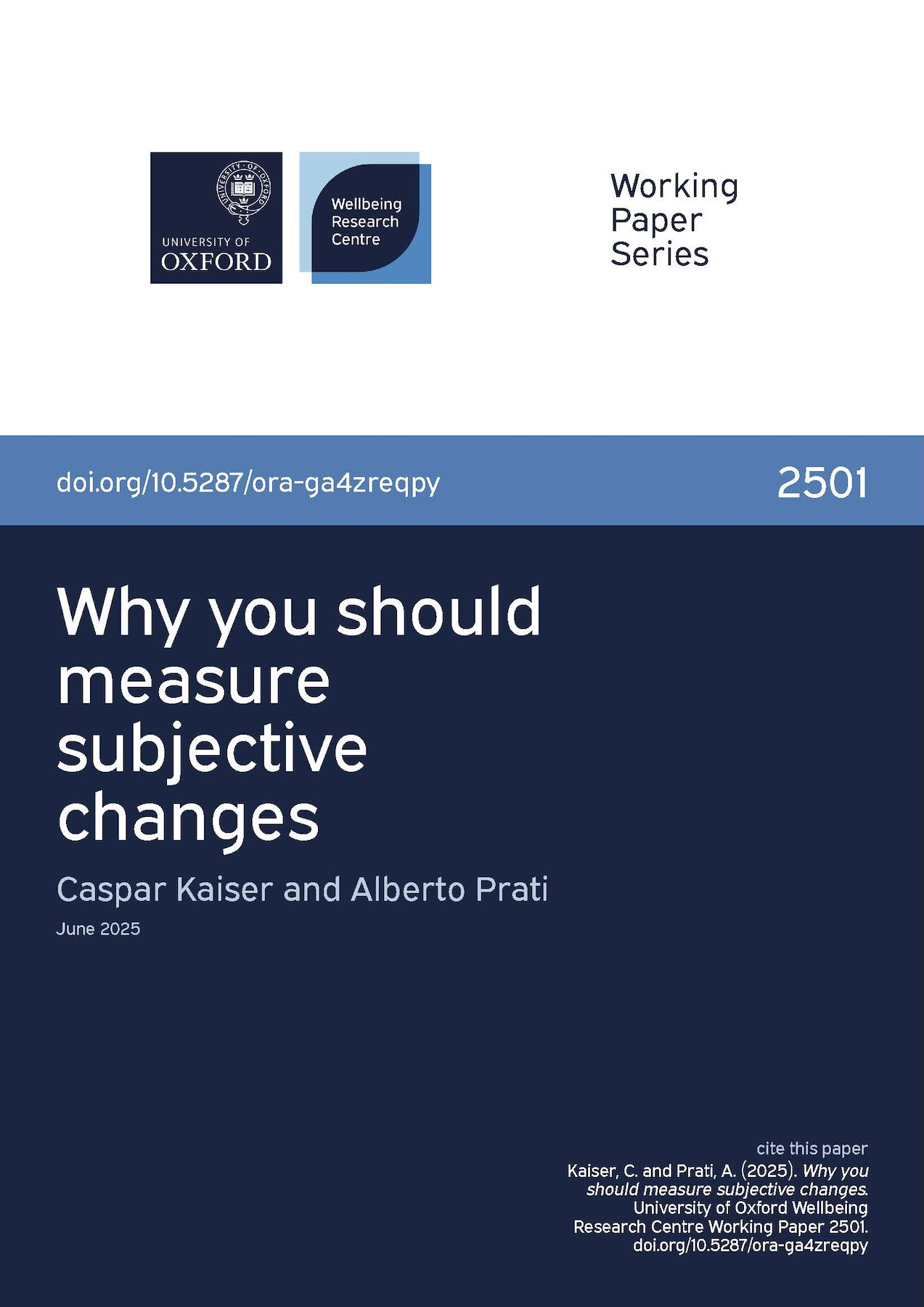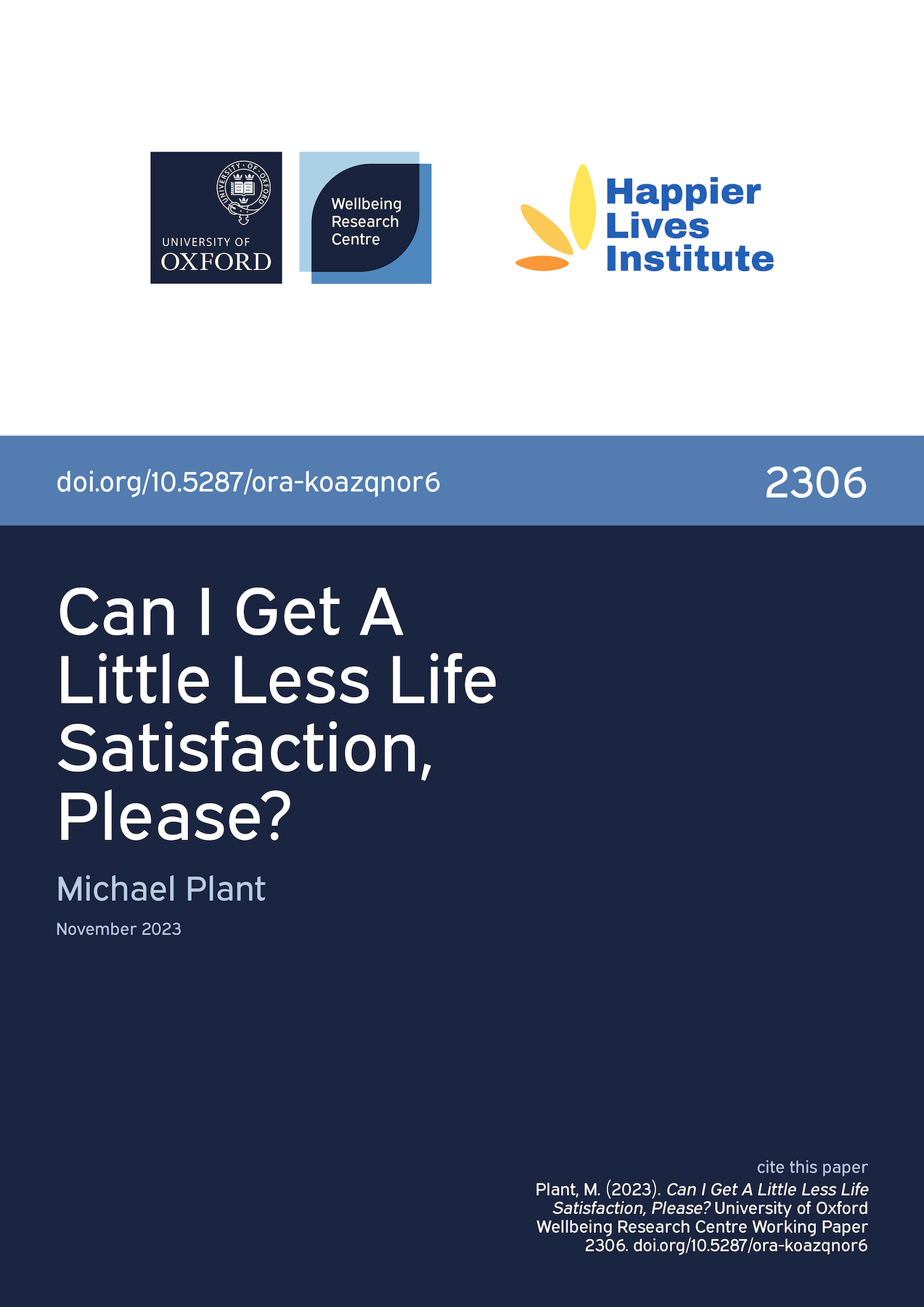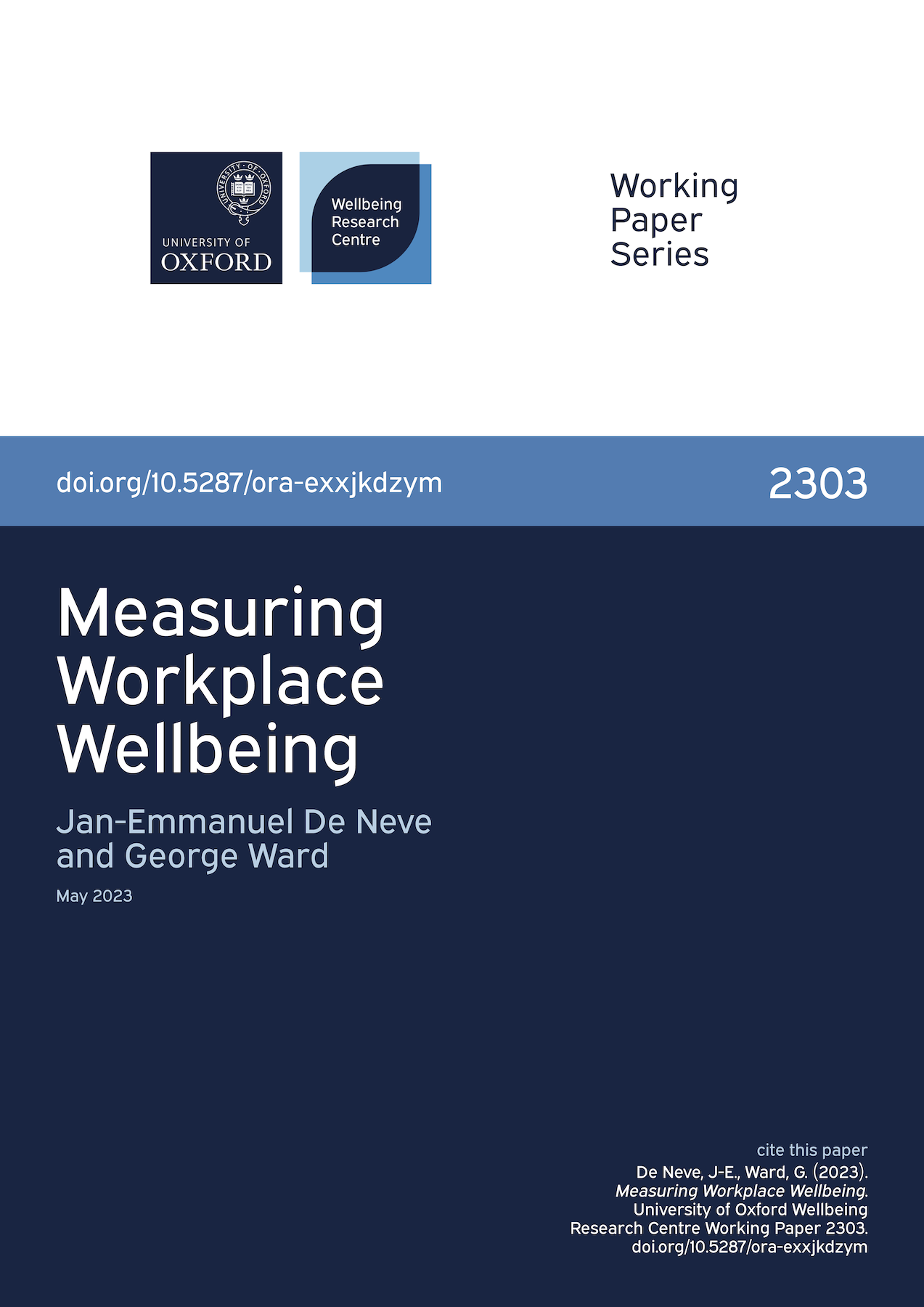
2401 | A Happy Probability About Happiness (and Other) Scales: An Exploration and Tentative Defence of the Cardinality Assumption
Michael Plant
Numerical surveys of feelings, such as “How happy are you, on a scale of 0-10?”, are now ubiquitous and increasingly taken seriously by researchers, governments, companies, and others. The data are often treated as cardinal – that is, a difference between a 2 and a 3 for one person is the same as that of a 5 to a 6 of another. There is long-running scepticism about assuming cardinality; if we have been wrong to assume it, the existing conclusions in the literature may be in doubt. This paper investigates how reasonable it is for researchers to assume scale cardinality. It makes four contributions. First, I observe that cardinality is a matter of degree, so we must ask if plausible deviations from it are big enough to make a difference. Second, I offer a novel argument for why it is rational for respondents to interpret the scales as cardinal if they want to accurately convey their feelings. Third, I argue that uncertainty about how people interpret surveys does not push us away from assuming cardinality; if anything, the opposite is true. Fourth, I conduct what is, as far as I am aware, the first review of the evidence of the conditions underlying cardinality (linearity and comparability); from this, I conclude the deviations, if they exist, are small enough that few, if any, practical conclusions would need to be revised. Hence, it seems reasonable to assume cardinality for now, but further exploration should be done. I close by noting that detours from cardinality can, in theory, be corrected statistically, so worries about how people answer surveys need not prevent us from ever using survey data.


